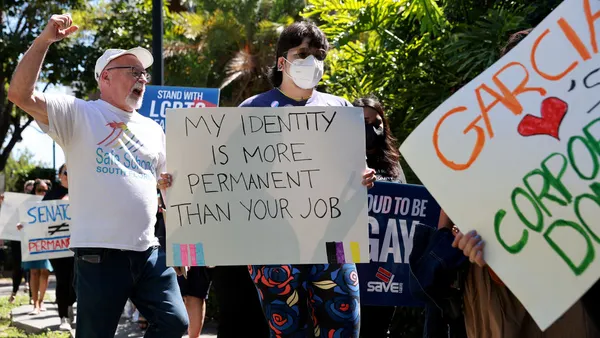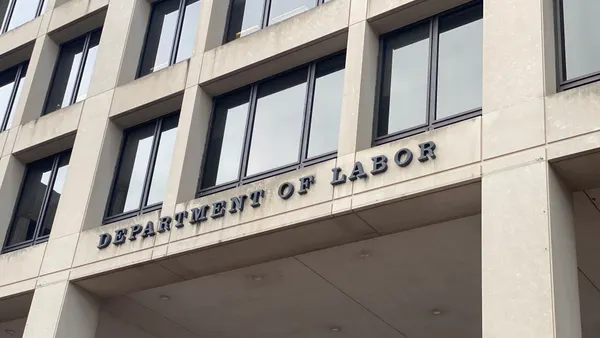Dive Brief:
- Delivery drivers for two companies that operate quarries and sell and distribute aggregate products such as crushed stone, sand and gravel throughout the U.S., allegedly violated the Fair Labor Standards Act when they misclassified the workers as independent contractors and failed to pay them the appropriate overtime pay, a March 10 lawsuit claimed (Bailey, et al. v. Vulcan Materials Co. and Southeast Division Logistics, LLC., No. 1:21-cv-00998 (N.D. Ga., March 20, 2021)).
- The workers said in the complaint that they are economically dependent for their financial livelihood on the defendants and that the defendants exercised "pervasive control" over their delivery operations.
- The workers also said they were required to sign "independent contractor service agreements."
Dive Insight:
It's common for employers in industries such as trucking and delivery services to classify drivers as independent contractors. However, the U.S. Department of Labor has said that "'common industry practice' is not an excuse to misclassify" workers under the FLSA.
The Trump Administration attempted to address independent contractor classification, publishing a rule in its final days. The rule was widely regarded as employer-friendly and used an "economic reality" test that looked at the degree and nature of a worker's control over their work and the opportunity for profit or loss, among other considerations. However, the Biden Administration has moved to rescind the rule.
The complaint in Bailey alleged that the employers exercised significant control over the plaintiffs. There are a number of tests for determining whether a worker is an independent contractor or an employee, but the tests generally consider how much control the employer exercises over working conditions. The more control an employer exercises, the more likely the worker will be viewed by the courts as an employee.
The plaintiffs also said they signed an agreement noting they are independent contractors, but the parties' preferences cannot control classification. Some courts have found that workers were employees even though there was a signed agreement that they were independent contractors. An appeals court decided in one instance that the amount of control 7-Eleven exerted over its franchisees was more significant than a signed agreement that the workers were independent contractors in determining worker classification. In another instance, a delivery driver was determined to be an employee by an Alabama federal court despite signing a form stating he was an independent contractor.












